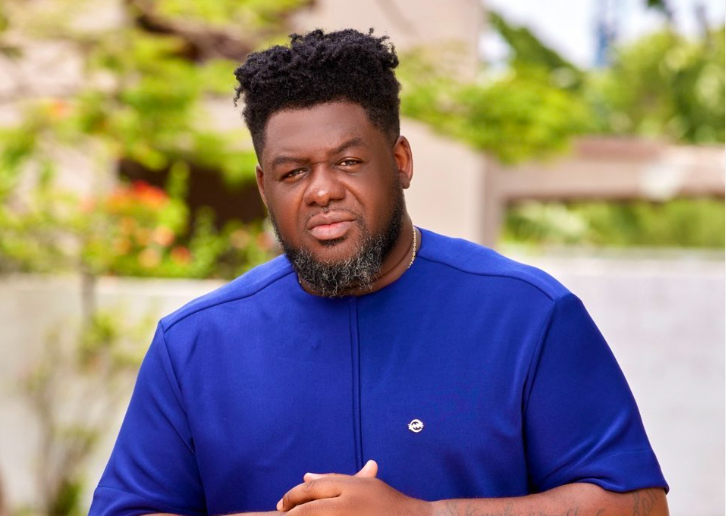Understanding Why Women Stay in Abusive Marriages in Africa: Culture, Survival, and Resilience
- orpmarketing
- May 21, 2025
- 4 min read

The question “Why do some African women stay with abusive husbands?” is often met with oversimplified answers—or worse, harmful stereotypes. The reality is deeply rooted in cultural, economic, and social dynamics unique to African contexts. While global frameworks like trauma bonding or Stockholm syndrome offer partial insights, they overlook the intricate web of tradition, community expectations, and systemic barriers that shape these decisions. Let’s explore the African lens on this issue, blending empathy with cultural nuance.
1. Cultural and Familial Pressures: “A Family’s Honor”
In many African communities, marriage is seen as a union of families, not just individuals. Divorce or separation can bring perceived “shame” to the entire family, leading women to endure abuse to preserve communal harmony. Elders may advise patience, framing abuse as a “normal” marital challenge. Proverbs like “A woman’s home is her husband’s” (Swahili: “Nyumba ya mwanamke ni mumewe”) reinforce the idea that perseverance is a virtue. Additionally, practices like lobola (bride price) can create a sense of indebtedness, with families urging women to “make it work” to avoid repayment stigma.
2. Fear of Spiritual or Supernatural Retaliation
Spiritual beliefs deeply influence decisions. In some cultures, women fear curses, ancestral wrath, or accusations of witchcraft if they leave. Abusers may threaten supernatural harm, claiming, “If you leave, my ancestors will punish you.” Others worry about violating vows made in traditional ceremonies, believing misfortune will follow disobedience. This fear is compounded by societal reliance on spiritual leaders, who may prioritize reconciliation over safety.
3. Economic Dependence and Limited Resources
Financial barriers are magnified in regions with high unemployment and gendered access to resources. Many African women work in informal sectors (farming, market trading) with unstable incomes. Without property rights or bank accounts—common in patriarchal systems—leaving often means destitution. In rural areas, limited access to shelters or legal aid exacerbates the crisis. As a Ghanaian survivor shared: “I stayed because where would I go? My farm was in his name.”
4. Fear of Losing Children
Children are central to African women’s identities, and abusive husbands often weaponize custody. Customary laws in some communities prioritize paternal lineage, meaning mothers risk losing children if they leave. Others fear their children will be ostracized as “fatherless” or denied inheritance rights. In polygamous households, co-wives or extended family may side with the abuser, isolating the mother further.
5. Weak Legal Protections and Corruption
While countries like South Africa and Kenya have strong laws against domestic violence, enforcement is inconsistent. Police may dismiss abuse as a “private matter,” demand bribes, or side with male breadwinners. Customary courts, which handle many rural disputes, often lack training on gender-based violence. A Ugandan activist noted: “Women are told to ‘go home’ unless they’re half-dead. Even then, justice is scarce.”
6. The Role of Religion and Misinterpreted Faith
Churches and mosques are pillars of African communities, but some leaders preach harmful interpretations of scripture. Women are urged to “submit to husbands” or “pray harder” to end abuse. In Nigeria, pastors have framed domestic violence as “spiritual warfare,” pressuring women to stay. Meanwhile, Quranic teachings on patience are sometimes misused to silence victims.
7. Hope in the Face of Intermittent Kindness
Like everywhere, the cycle of abuse includes fleeting “good times.” An abusive husband might fund a child’s school fees, pay a medical bill, or bring gifts after violence—acts that reignite hope. In cultures where marriage is viewed as lifelong, women cling to these moments, thinking, “Maybe he’ll change before our 25th anniversary.”
8. Community Silence and Stigma
Communities often protect abusers, especially if they’re influential or wealthy. A Kenyan survivor recounted: “When I spoke up, neighbors said I was lying to tarnish his reputation as a pastor.” Widows face added stigma; leaving might mean losing land or being labeled “greedy” by in-laws. Meanwhile, younger women fear being seen as “failures” in a society that equates marriage with success.
Key Factors in the African Context
Cultural Duty: Pressure to uphold family honor and marital vows.
Spiritual Fear: Threats of curses or ancestral punishment.
Economic Barriers: Lack of property rights, formal income, or shelters.
Child Custody Risks: Paternal lineage laws and polygamous dynamics.
Legal Gaps: Corruption, weak enforcement, and patriarchal customary courts.
Religious Misguidance: Misuse of scripture to justify abuse.
Breaking the Silence: African-Led Solutions
Change is growing through grassroots efforts:
Women’s Collectives: Groups like Kenya’s Maendeleo ya Wanawake provide microloans and safe houses.
Traditional Leaders as Allies: Programs in Zambia train chiefs to mediate abuse cases fairly.
Mobile Technology: Apps like Nivishe (Tanzania) connect survivors to legal aid via SMS.
Art and Storytelling: Plays, songs, and radio dramas (e.g., Liberia’s PALwHUT) challenge stigma.
How to Support African Survivors
Amplify Local Voices: Donate to African NGOs, not foreign-led campaigns.
Challenge Harmful Norms: Engage men and boys in dialogues about healthy masculinity.
Push for Legal Reform: Advocate for laws that recognize marital rape and protect widows’ rights.
As the Ghanaian proverb goes: “A woman is a flower in a garden; her thorns defend her.” Let’s nurture environments where African women can bloom without fear.
Africa-Based Resources:
South Africa: People Opposing Women Abuse (POWA) – 011 642 4345
Nigeria: Women’s Aid Collective (WACOL) – +234 803 681 7473
Kenya: FIDA Kenya (Legal Aid) – 0733 744 884
Pan-African: African Women’s Development Fund – www.awdf.org
No one is alone. Strength lives in community. 🌍💜




Comments